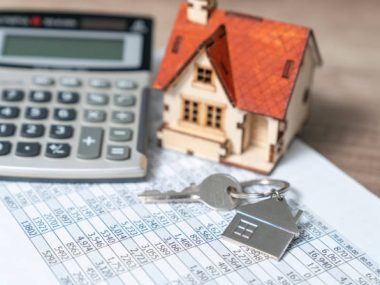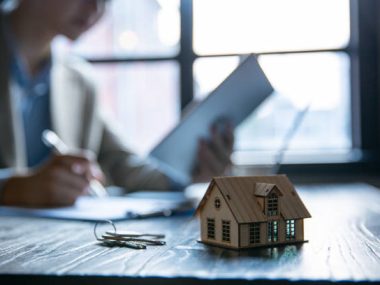Can you lose your house with a reverse mortgage? As retirement approaches, many seniors explore various financial options to ensure a comfortable and stable future.
One such option that has gained popularity is the reverse mortgage.
Designed to provide older homeowners with a way to tap into their home equity while continuing to live in their homes, reverse mortgages offer financial flexibility during retirement years.
However, amidst the benefits, concerns have arisen regarding the possibility of losing one’s house with a reverse mortgage.
This article delves into the intricacies of reverse mortgages, the associated risks, and the factors that contribute to the potential of losing home ownership.
By understanding the mechanisms at play and the precautions to take, seniors and their families can make well-informed decisions about utilizing reverse mortgages as a financial tool while safeguarding their cherished homes.
Also Read:
Can You Have a Cosigner on a Mortgage?
Can You Add Renovation Costs to Conventional Mortgage?
Can You Lose Your House with a Reverse Mortgage?
A reverse mortgage, designed to aid older homeowners in accessing their home equity, raises questions about the security of home ownership.
While reverse mortgages offer financial relief by converting home equity into cash, the risk of losing one’s house is a valid concern.
If borrowers fail to meet their obligations under the terms of the loan, such as paying property taxes, homeowners insurance, or maintaining the property, they may be at risk of foreclosure.
The loan becomes due and payable upon certain triggering events, such as the homeowner’s death or if they move out of the home.
If these obligations are not met, the lender could initiate foreclosure proceedings, potentially leading to the loss of the home.
To mitigate this risk, borrowers must fully understand the terms and responsibilities of a reverse mortgage.
Seeking professional advice and adhering to loan requirements can help homeowners make informed decisions.
Additionally, staying current on property-related expenses is crucial to maintaining the loan’s viability and preventing the threat of foreclosure.
While reverse mortgages can provide financial flexibility, prudence, and careful consideration are essential to ensure that the benefits outweigh the risks, enabling seniors to enjoy their retirement years without jeopardizing the ownership of their cherished homes.
How Reverse Mortgages Work
Reverse mortgages are financial arrangements primarily aimed at senior homeowners to access their home equity while continuing to reside in their homes.
Unlike traditional mortgages, where homeowners make monthly payments to lenders, reverse mortgages allow homeowners to receive payments from lenders based on their home’s equity.
The loan amount is determined by factors such as the borrower’s age, home value, and current interest rates.
The unique aspect of reverse mortgages is that they do not require monthly payments.
Instead, the loan accumulates interest over time, and the total amount, including accrued interest, becomes due when the homeowner sells the house, moves out, or passes away.
The homeowner retains the title to the property, and the loan is repaid from the sale proceeds.
Reverse mortgages come in various types, including government-insured Home Equity Conversion Mortgages (HECMs) and proprietary reverse mortgages offered by private lenders.
Homeowners are still responsible for property taxes, insurance, and maintenance.
These financial tools provide a means for seniors to supplement retirement income or cover unexpected expenses using their home equity.
However, it’s crucial for borrowers to fully comprehend the terms, costs, and potential risks associated with reverse mortgages.
Seeking advice from financial professionals can help individuals make informed decisions about whether a reverse mortgage aligns with their financial goals and needs.
Factors That Impact Home Ownership with a Reverse Mortgage
Homeownership with a reverse mortgage is influenced by several critical factors that borrowers should consider.
Firstly, the borrower’s adherence to the loan requirements is crucial.
Failure to meet obligations such as paying property taxes, homeowners insurance, and maintaining the property’s condition could result in loan default and potential foreclosure.
The home’s market value is another key factor.
Reverse mortgage loan limits are often tied to the property’s appraised value, and borrowers typically cannot access the entire equity if it exceeds these limits.
Age plays a significant role. The older the borrower, the more equity they can potentially access.
Younger spouses, however, might face limitations in borrowing if not named on the loan, due to the requirement that the loan becomes due when the last borrower moves out or passes away.
Interest rates impact the amount borrowers can receive and the total repayment.
Lower interest rates mean borrowers can access more funds, while higher rates lead to greater interest accrual.
Choosing between lump-sum, monthly payments, or a line of credit affects the loan’s longevity and potential impact on home equity.
Understanding these factors is vital for borrowers considering a reverse mortgage.
Seeking professional guidance ensures informed decisions and helps individuals maintain homeownership while responsibly utilizing their equity for financial security.
Also Read:
How Is Rental Income Taxed When You Have a Mortgage?
How Many Days Before Closing Do You Get Mortgage Approval?
Conclusion
While reverse mortgages offer seniors a means to access their home equity during retirement, the potential of losing one’s house is a genuine concern.
Responsible borrowing, maintaining property obligations, and staying informed about loan terms are pivotal in safeguarding homeownership.
Seeking advice from financial experts and understanding the intricacies of reverse mortgages empower seniors to make sound decisions.
By balancing the benefits and risks, individuals can embrace the financial flexibility offered by reverse mortgages while preserving their cherished homes for a secure and comfortable retirement.






